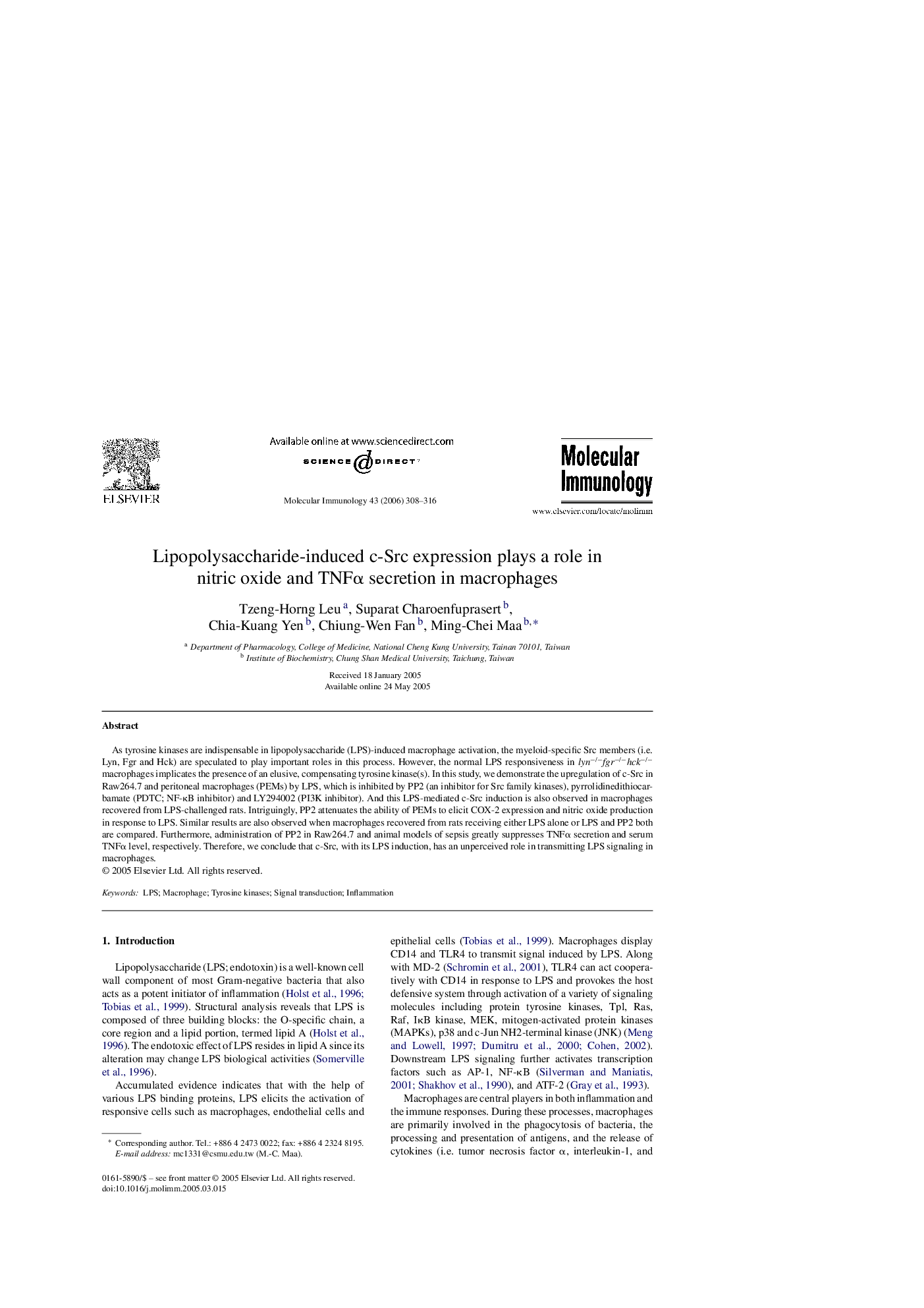| Article ID | Journal | Published Year | Pages | File Type |
|---|---|---|---|---|
| 2833421 | Molecular Immunology | 2006 | 9 Pages |
As tyrosine kinases are indispensable in lipopolysaccharide (LPS)-induced macrophage activation, the myeloid-specific Src members (i.e. Lyn, Fgr and Hck) are speculated to play important roles in this process. However, the normal LPS responsiveness in lyn−/−fgr−/−hck−/− macrophages implicates the presence of an elusive, compensating tyrosine kinase(s). In this study, we demonstrate the upregulation of c-Src in Raw264.7 and peritoneal macrophages (PEMs) by LPS, which is inhibited by PP2 (an inhibitor for Src family kinases), pyrrolidinedithiocarbamate (PDTC; NF-κB inhibitor) and LY294002 (PI3K inhibitor). And this LPS-mediated c-Src induction is also observed in macrophages recovered from LPS-challenged rats. Intriguingly, PP2 attenuates the ability of PEMs to elicit COX-2 expression and nitric oxide production in response to LPS. Similar results are also observed when macrophages recovered from rats receiving either LPS alone or LPS and PP2 both are compared. Furthermore, administration of PP2 in Raw264.7 and animal models of sepsis greatly suppresses TNFα secretion and serum TNFα level, respectively. Therefore, we conclude that c-Src, with its LPS induction, has an unperceived role in transmitting LPS signaling in macrophages.
